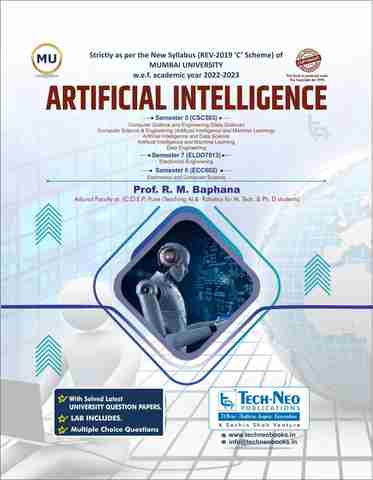Artificial Intelligence For MU Semester 5 (Data Science) AIDS AIML Data Engineering & 6 Electronics And Computer Science & 7 Electronics Engineering :Information Technology (Code :: ITDO8013) Academic Year 2022-2023
Artificial Intelligence For MU Semester 5 (Data Science) AIDS AIM...
more
Product highlights
Book
Artificial Intelligence For MU Semester 5 (Data Science) AIDS AIML Data Engineering & 6 Electronics And Computer Science & 7 Electronics Engineering :Information Technology (Code :: ITDO8013) Academic Year 2022-2023
Author
Prof. R. M. Baphana
Binding
Paperback
Publishing Date
2023
Publisher
Tech-Neo Publications
Edition
1
Board
MU
Exam
MU
Questions and Answers
No questions and answers available
Be the first to ask about this product
Ask a question
Hang on, loading content









